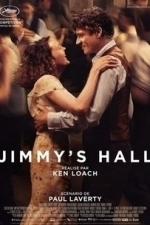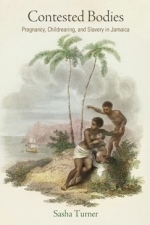
Contested Bodies: Pregnancy, Childrearing, and Slavery in Jamaica
Book
It is often thought that slaveholders only began to show an interest in female slaves' reproductive...
History Politics Gender Studies
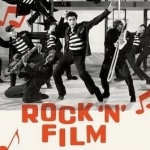
Rock 'n' Film: Cinema's Dance with Popular Music
Book
Rock 'N' Film presents a cultural history of films about US and British rock music during the period...

Advanced English Dictionary & Thesaurus
Reference and Travel
App
* Featured by Apple in "STAFF FAVORITES" and "WHAT'S HOT"! Features that make Advanced English...
Gareth von Kallenbach (980 KP) rated Jimmy's Hall (2015) in Movies
Aug 6, 2019
The few that do come along almost certainly rate high on the scale of exceptional movies that one would want to see. I myself can’t remember a ‘bad’ Irish film. Perhaps one of the reasons for that is the fact that this country has a solid history of countless Irish immigrants coming here and helping to build the foundations for America. Well, today’s film for your consideration doesn’t go back THAT far. It doesn’t even take place in America. However, the history of Irish immigrants (specifically one immigrant) does play a role. Only it involves an Irish immigrant how came to America and then several years later returned to Ireland only to be forcibly deported back to America. I know I know. That explanation makes it sound like a comedy and although the film has many lighthearted moments, I can assure you it’s NOT a comedy. In fact, it deals with an influential figure in one of the more politically turbulent periods in Ireland’s history just before the beginning of the Second World War.
‘Jimmy’s Hall’ is a 2014 Irish-British drama directed by English television and film director Kenneth ‘Ken’ Loach. The film focuses on the events leading up to the deportation from Ireland of Jimmy Gralton, who led a precursor to Ireland’s communist party in the county Leitrim.
Starring Barry Ward, Simone Kirby, and Irish character actor Jim Norton, the film opens in 1932. Jimmy (Ward) has just returned to his home to help his mother tend the family farm after spending 10 years in the United States in the midst of the Great Depression coinciding with the establishment of a new government in the aftermath of the Civil War between pro-British and anti-British forces.
Reluctant to anger his old enemies, the church and the landowners who forced him to leave Ireland, but eager to meet the needs of the people of Leitrim, Jimmy (Ward) decides to reopen the ‘Hall’, a center for young people where they can meet to study, talk, dance, play music, learn to read, debate issues of the day. Free to all and open to anyone who wishes to learn while respecting the views and opinions of others, the ‘Hall’ is an immediate success. Not everyone is pleased to see Jimmy resuming his old activities. In particular the church and local priest (Norton) who see Gralton as not only a ‘bad influence’, but also as a follower of Stalin who as history knows sent countless millions (including religious leaders) to their deaths.
Despite the complaints and at times violent reactions on the part of the supporters of the church and the landowners, Gralton tries desperately to make them realize he has absolutely no connection to Stalin and has no desire to bring down the church. Only to better the situation for everyone. Jimmy even invites the local priest to take a leadership role in the Hall’s committee. In the end though, the fears of the church and the state go unchanged. Jimmy is a communist and although he has no connection Stalin the church and the government see them as one in the same. The police take Jimmy into custody at his family’s farm and forcibly deport him back to America even so much as denying him on last chance to see his ailing mother.
In education systems there are books and films which are considered ‘required reading’ or in this case ‘required viewing’. This film should be required viewing. It is not just an excellent film about a historical Irish political figure or as I mentioned earlier a film about a turbulent point in Irish history. It’s an example of the greater ‘world conflict’ between what became the western bloc and the eastern bloc. Both sides in that grater conflict saw each other the same way the two sides in the Irish countryside of the 1930s saw each other. The ones that meant well and only wanted to better the situation for everyone including themselves inspired fear in those who had power and those who had the power inspired fear in those who meant well. This movie showed that not all political figures are evil … nor are all religious figures. It’s the individual or several individuals within those groups that are reluctant to change.
I would highly recommend this film. Regardless of the content it’s an excellent film. If this film is as good as most films made in Ireland, they definitely need to start exporting them on a grander scale. I’d give this film 4 out of 5 stars.
This is your friendly neighborhood photographer ‘The CameraMan’ and on behalf of my fellows at ‘Skewed & Reviewed’ I’d like to say thanks for reading and we’ll see you at the movies
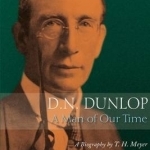
D. N. Dunlop, a Man of Our Time: A Biography
T.H. Meyer and Ian Bass
Book
D.N. Dunlop (1868-1935) combined remarkable practical and organizational abilities in industry and...
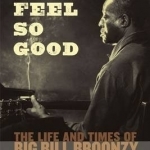
I Feel So Good: The Life and Times of Big Bill Broonzy
Peter Guralnick, Bob Riesman and Pete Townshend
Book
A major figure in American blues and folk music, Big Bill Broonzy (1903-58) left his Arkansas Delta...

Cambridge English Pronouncing Dictionary
Reference and Education
App
FREE PREVIEW Full wordlist and sample entries are available to preview the dictionary content and...
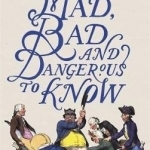
Mad, Bad and Dangerous to Know: The Extraordinary Exploits of the British and European Aristocracy
Book
The alarming history of the British, and European, aristocracy - from Argyll to Wellington and from...

Ta-ra-ra-boom-de-ay: The Dodgy Business of Popular Music
Book
Simon Napier-Bell is a legend in the music business. Not only was he the manager of The Yardbirds, T...
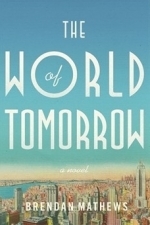
The World of Tomorrow
Book
Three brothers caught up in a whirlwind week of love, blackmail, and betrayal that culminates in an...
Fiction
